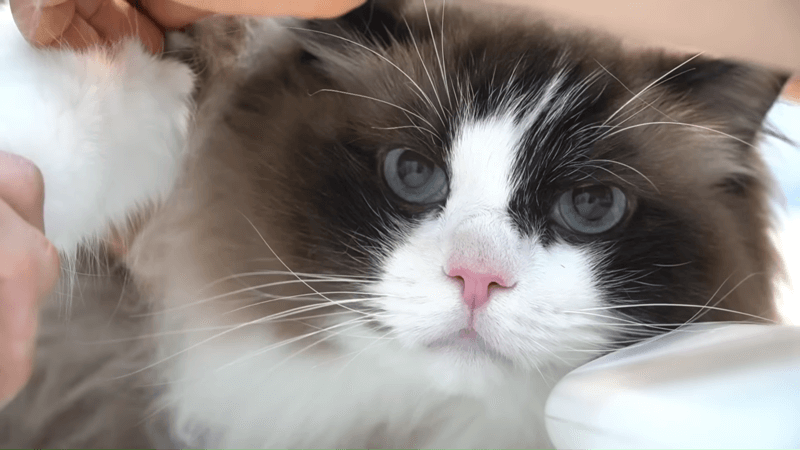No products in the cart.
CBD oil for dying cat dosage is a critical aspect that must be carefully considered to ensure comfort and well-being during their final days. That’s why understanding the right CBD oil dosage for dying cats is so essential if we want to ensure they find comfort and peace during this sensitive phase.
Today, we will explore, does cbd cause cancer, CBD oil benefits for cancer, and supplements for cats with cancer can provide gentle support and relief for our beloved cats as they face the challenges of their last chapter. Together, let’s embrace compassion and learn about the potential benefits of CBD oil.
CBD Oil for Dying Cat Dosage
It is important to stress that there is no standard CBD dosage, especially for cats with cancer. Working with a veterinarian knowledgeable in CBD use for pets is essential because the appropriate dosage may change depending on the aforementioned considerations. For instance, a 4-kg cat would begin with 0.4 mg to 2 mg of CBD administered twice daily. This is only a general guide, and the precise dosage may need to be changed depending on how the cat responds and the advice of the doctor.
Start with a small dosage, carefully monitor your cat’s reaction, and gradually raise the dosage until you find the appropriate level that achieves the desired effects without causing any bad reactions.
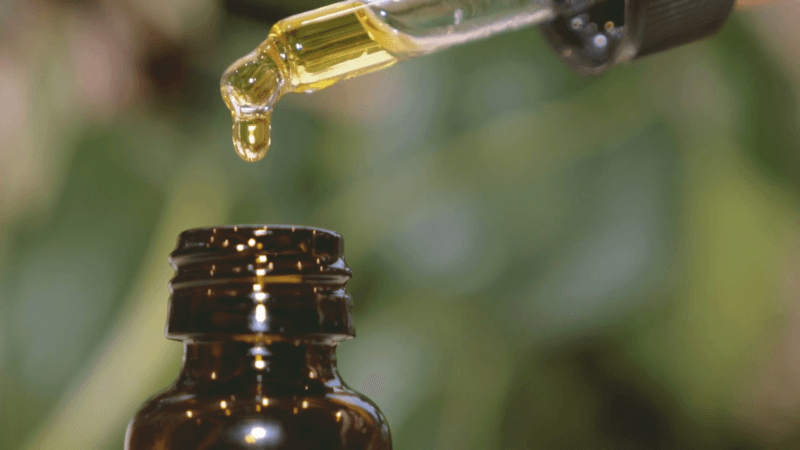
What Is CBD Oil?
CBD is a natural compound derived from the hemp plant. It is known for its potential therapeutic properties and is gaining popularity as a supplement for pet wellness, including cats. CBD oil is typically extracted from hemp, which is a variety of cannabis with low levels of THC. This ensures that the CBD oil intended for cats contains very minimal or no THC, making it safe for feline consumption. CBD oil for cats is gaining popularity as a potential natural remedy to support their overall well-being and address certain health issues.
Factors to Consider When Determining CBD Oil for Dying Cat Dosage
When determining the appropriate CBD dosage for a cat with cancer, there are several factors that need to be taken into account.
- Cat’s Weight and Size: Cats that have different sizes require different dosages, with larger cats normally needing higher doses.
- The severity of the condition: The stage and severity of the cat’s cancer can influence the dosage. Severe cases may require higher amounts of CBD.
- CBD Concentration: The concentration of CBD in the product can affect its effectiveness. Higher concentrations may require smaller volumes to achieve the desired effect.
- Cat’s Individual Response: Cats can respond differently to CBD, and some may be more sensitive than others.
- Other Medications: If the cat is taking other medications for cancer or other health issues, consulting a veterinarian is necessary.
- Purpose of CBD Use: The dosage for pain relief might differ from that for anxiety management, so be careful with that.
Does CBD Cause Cancer?
There is no evidence that CBD (cannabidiol) causes cancer in cats or other animals. Some pet owners use CBD products to help manage certain health concerns in their cats, such as pain, anxiety, or seizures, and CBD is now a popular natural remedy.
However, it’s important to proceed cautiously while using CBD on animals. The research is still in its early stages, despite some studies and anecdotal data suggesting that CBD may be safe and advantageous for pets.
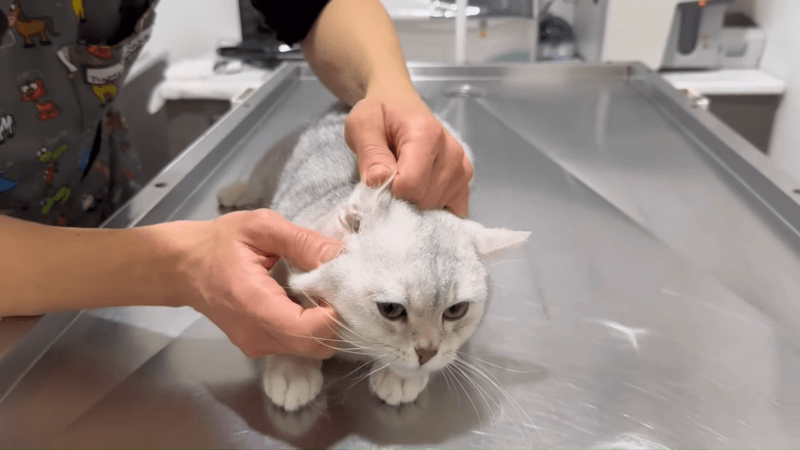
How Does CBD Work?
When your cat takes CBD, it’s like a friendly guest entering their body and having a chat with some special receptors called CB1 and CB2. These receptors are like little messengers that are located in different parts of the body. CB1 hangs out mostly in the brain, while CB2 is found in places like organs and immune cells.
Once CBD binds to these receptors, it can have different effects on the cat. For example, cat CBD can help ease pain, reduce inflammation, or even calm them down if they’re feeling anxious.
Myths About CBD and Cancer
As with many popular topics, there are several myths and misconceptions surrounding CBD and its potential effects on cancer in cats. Here are some common myths about CBD and cancer in cats.
- CBD cures cancer: There is currently no scientific evidence to support the claim that CBD can cure cancer in cats or any other animals.
- CBD can replace cancer treatments. CBD is not a proven treatment for cat cancer, despite the fact that it might have some potential health advantages. Conventional treatments like surgery, chemotherapy, and radiation therapy are standard approaches for managing cancer in pets.
- CBD can prevent cancer in cats. Maintaining a healthy lifestyle, a balanced diet, scheduling routine checkups with the doctor, and minimizing exposure to potential carcinogens can prevent cancer in cats.
- All CBD products are safe for cats. Not all CBD products are made equally, and some formulations intended for humans can include components hazardous to cats. It’s crucial to use CBD products specifically formulated for pets.
- CBD has no side effects. While CBD is typically well tolerated by cats, it can have adverse effects if given in excessive dosages. CBD has no side effects. Drowsiness, gastrointestinal distress, and changes in appetite are examples of common adverse effects.
- CBD can mask cancer symptoms. CBD can help control pain and inflammation. However, CBD does not treat the underlying condition. It only masks some cancer symptoms. Relying solely on CBD to manage symptoms can delay appropriate medical attention and potentially life-saving treatments.
CBD Oil Benefits for Cancer
Some potential benefits of CBD oil for cats with cancer, based on limited research and anecdotal evidence, may include.
- Pain Management: CBD may have analgesic properties that could help alleviate pain associated with cancer in cats.
- Reducing Inflammation: CBD’s anti-inflammatory properties might aid in managing inflammation related to cancer or cancer treatments.
- Stress and Anxiety Relief: Cats with cancer may experience stress and anxiety. CBD could potentially help reduce these emotional symptoms.
- Nausea and Appetite Stimulation: Cancer and its treatments may cause nausea and loss of appetite in cats. CBD might help manage these issues and stimulate the appetite.
- Supporting Quality of Life: Some cat owners use CBD oil to enhance their pets’ overall quality of life, though its specific impact on cancer-related symptoms in cats remains uncertain.
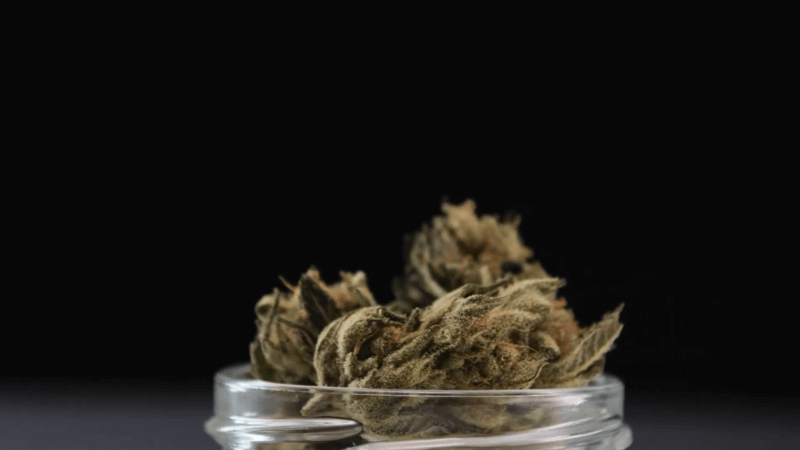
Supplements for Cats With Cancer
Here are some supplements that may be considered under veterinary guidance.
- Omega-3 Fatty Acids: Omega-3 fatty acids, often derived from fish oil, have anti-inflammatory properties and may help support the immune system and overall health of cats with cancer.
- Probiotics: They might be beneficial if the cat is experiencing digestive issues due to cancer treatments.
- L-Glutamine: L-glutamine is an amino acid that could boost the gastrointestinal system and encourage recovery in cats after cancer therapies.
- Mushroom Supplements: Certain mushroom supplements, such as turkey tail or reishi mushrooms, are being studied for their potential immune-modulating effects and may be considered as part of a comprehensive cancer management plan.
- CBD Oil: As mentioned earlier, CBD oil may help manage certain symptoms associated with cancer, such as pain and inflammation. Always use CBD products specifically formulated for pets and consult with a veterinarian before use.
- Herbal Supplements: Some herbal remedies, like milk thistle or astragalus, are occasionally used to enhance the immune system or liver function in cats who have cancer.
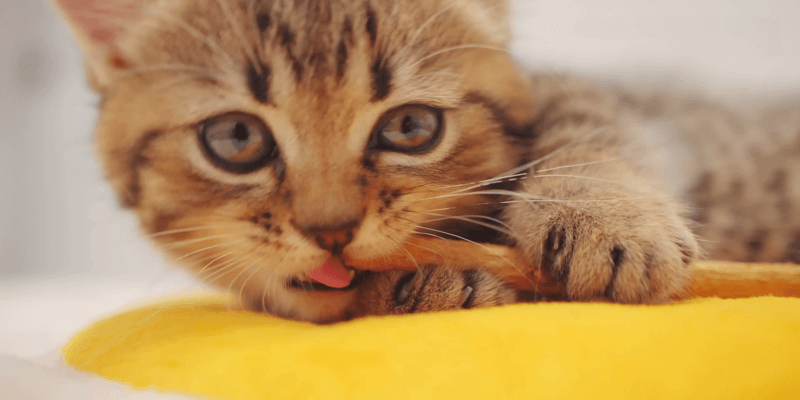
Conclusion
CBD oil for dying cat dosage must be carefully considered to ensure their comfort and well-being in their final days. CBD oil, a natural and non-intoxicating compound derived from hemp, can potentially offer relief and support during this challenging time. While CBD cannot cure or reverse the dying process, it may provide some comfort and ease any pain or discomfort they may be experiencing in their final moments. Compassionate care and consultation with a veterinarian will ensure that the dying cat receives the best possible support during this sensitive phase.
I am Nelson Cooper, I pursue my passion for writing and my belief is that cats love humans. I enjoy traveling and have a deep appreciation for the beauty of nature, as well as a soft spot for animals, particularly cats.

